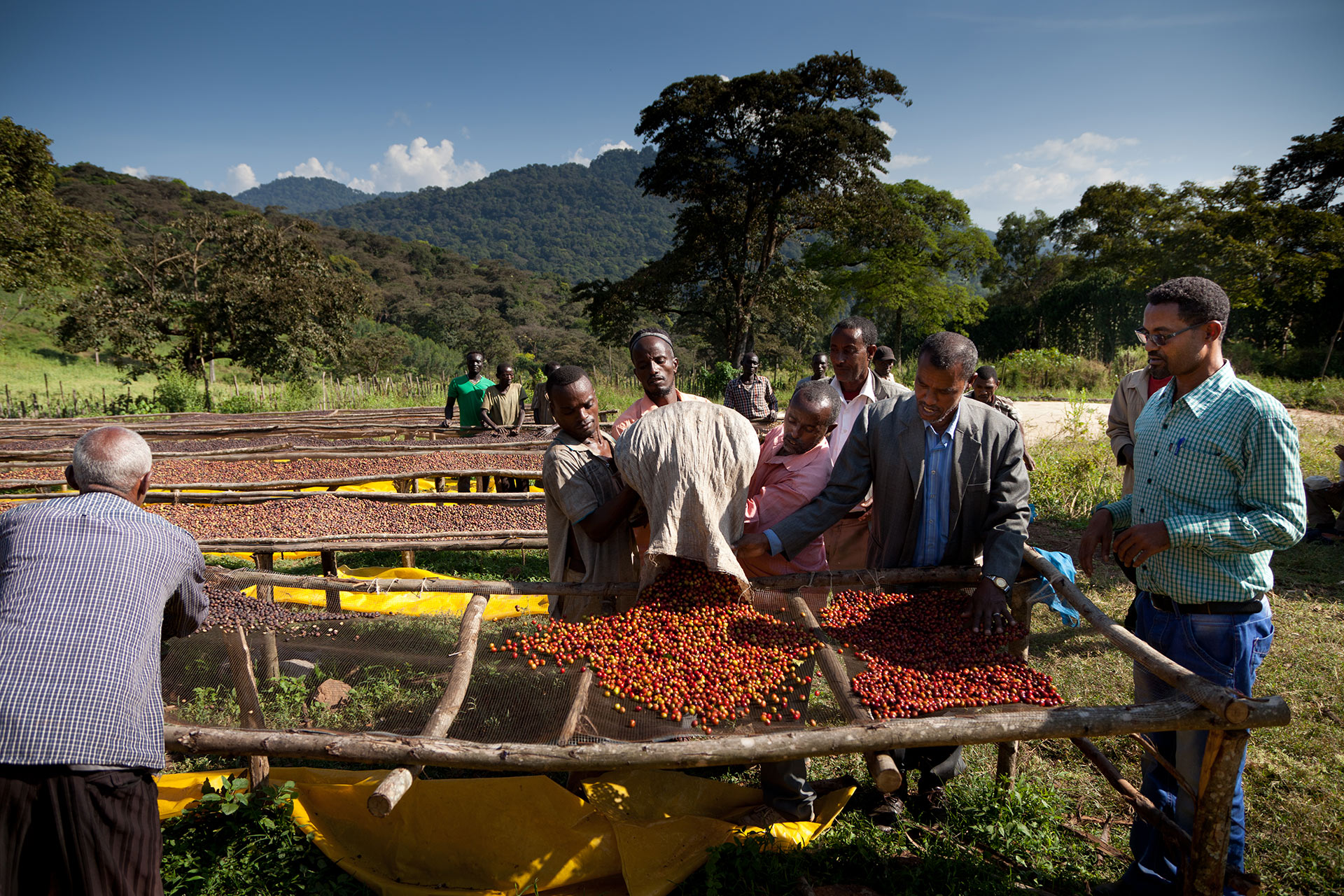Sustainable and Resilient Communities (SRC)
Environmental sustainability and natural resource management
An important aspect of the SRC’s work is in research, training and consultancy to support the livelihoods of rural communities through the development of practices to ensure the sustainable management of their natural resources.
Two key lessons direct the research and development activities of the SRC’s work in this area. The first is the need for appropriate incentives, usually through market links and value chain development, for households and communities to develop and use their natural resources.
The second is the role of appropriate institutional arrangements to ensure the sustainable use of these resources, and to prevent their degradation. In this way sustainable rural livelihoods are enhanced and the resilience of communities to cope with socio-economic and environmental challenges is improved.
Research is currently focused on the Community Conservation of Wild Coffee and Natural Forest Management project, details of which are immediately below. Further details of previous projects in this area can be found at http://wetlandsandforests.hud.ac.uk.
Honey, spice and jams: micro-enterprises to improve livelihoods and protect forests in Ethiopia
This project works in tandem with the Community Conservation of Wild Coffee project to develop value chains for under-utilised non-timber forest products (NTFP’s), such as honey, spices and forest fruits to enable economically excluded people, particularly women to create micro-enterprises targeting new national and international markets.
Working with existing forest management groups and community cooperatives, the project aims to reduce the rate of deforestation as communities increasingly value forests and benefit economically from them.
The project is underpinned by a commitment to Participatory Forestry Management which promotes local, community rights to the forest, sustainable economic development opportunities and responsibilities for biodiversity conservation.
Community Conservation of Wild Coffee and Natural Forest Management (CCWC-NFM)
From 2010 to 2016 the University of Huddersfield implemented a project working with 55 communities, covering 76,000 hectares of montane rainforest in South West Ethiopia (see WCC project below). This sought to test the effectiveness of Participatory Forest Management (PFM) as a way of maintaining the unique wild coffee genetic resources in these forests. Results from three external assessments show that the project helped to slow deforestation, protect valuable biodiversity, increase carbon stocks and improve forest-based livelihoods.
Building on these positive results CCWC-NFM is being implemented to improve the sustainability of the forest management arrangements and increase benefits for the local communities, as well as maintain the wild coffee stands. Further funding over three years has been secured. Find out more.
This project will help expand the area under devolved forest management arrangements, reducing forest degradation and deforestation and improve the livelihoods of some of the poorest forest fringe communities in Ethiopia. This work will also provide impact case studies for the forthcoming REF and demonstrate SRC’s long-term commitment to sustainable conservation and enterprise development.

The Wild Coffee Conservation by Participatory Forest Management project (WCC-PFM)
This five- year project is based in South West Ethiopia, the birthplace of coffee (Coffea arabica) and the centre of its genetic diversity. Coffee is a globally important crop, the most traded agricultural commodity internationally. Conserving the gene pool of Arabica coffee is of local, national and global importance. This project is developing and implementing an in situ approach to wild coffee conservation using a devolved forest management approach whereby the rights, revenues and responsibilities for forest management are given back to the community. This work is funded by the EU, Darwin Initiative (UK Government) and HOAREC (Horn of Africa Regional Environmental Centre and Network). (Professor Adrian Wood).
Non-timber Forest Products (NTFP-PFM) project
This was a 10 year project that aimed to contribute to maintaining a forested landscape in South West Ethiopia by supporting the development of improved forest-based livelihoods for the local forest-dependent communities, thereby ensuring the delivery of environmental services in a wider, regional and international context. In the first phase (2003-2007) the focus was on NTFPs and their development. In the second phase (2007-2013) on scaling up that work within a PFM framework and developing forest-based institutions and enterprises. Work was funded by the EU, Netherlands, Norwegian and Canadian Embassies.
For more information on both the above projects, please go to: wetlandsandforests.hud.ac.uk
Wetland management for sustainable livelihoods
This is a related area of interest at SRC. Through collaboration with Wetland Action, SRC staff have been engaged in a global study of the interaction between agriculture and wetlands in order to identify new policies to address this area of traditional conflict. With the Ethio-Wetlands and Natural Resources Association (EWNRA) and Gorta Self Help Africa work has been undertaken on methods for sustainable wetland management. Work has been carried out in Malawi, Zambia and Ethiopia. A key focus of our wetland work has been to change the paradigm of international thinking about these areas from conservation to sustainable utilisation. This is critical in order to address development goals and to cope with climate change. (Professor Adrian Wood).
